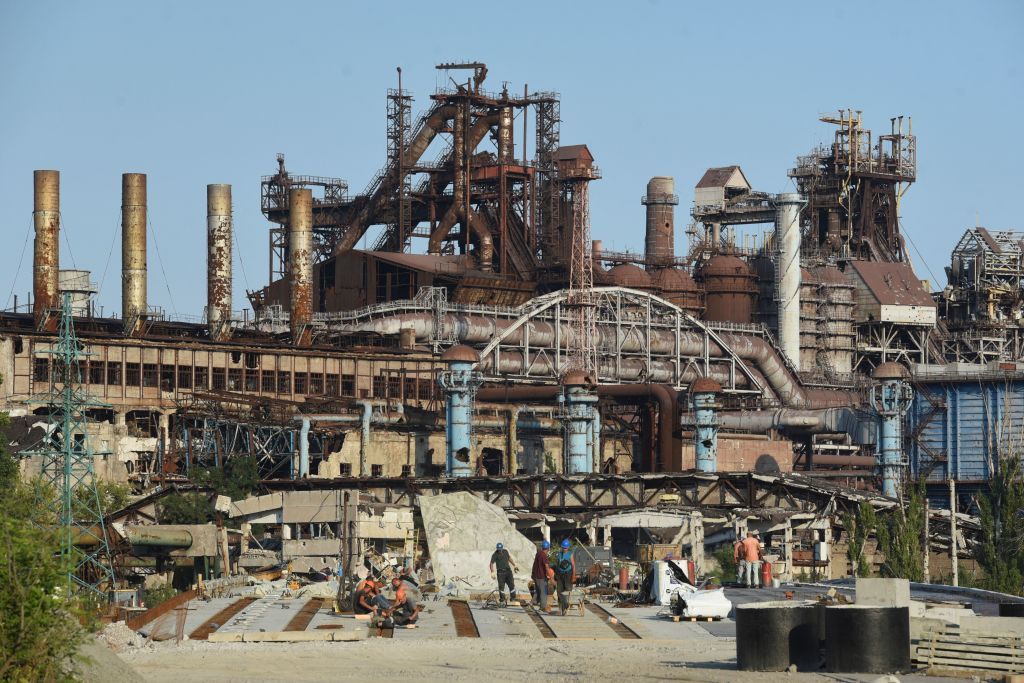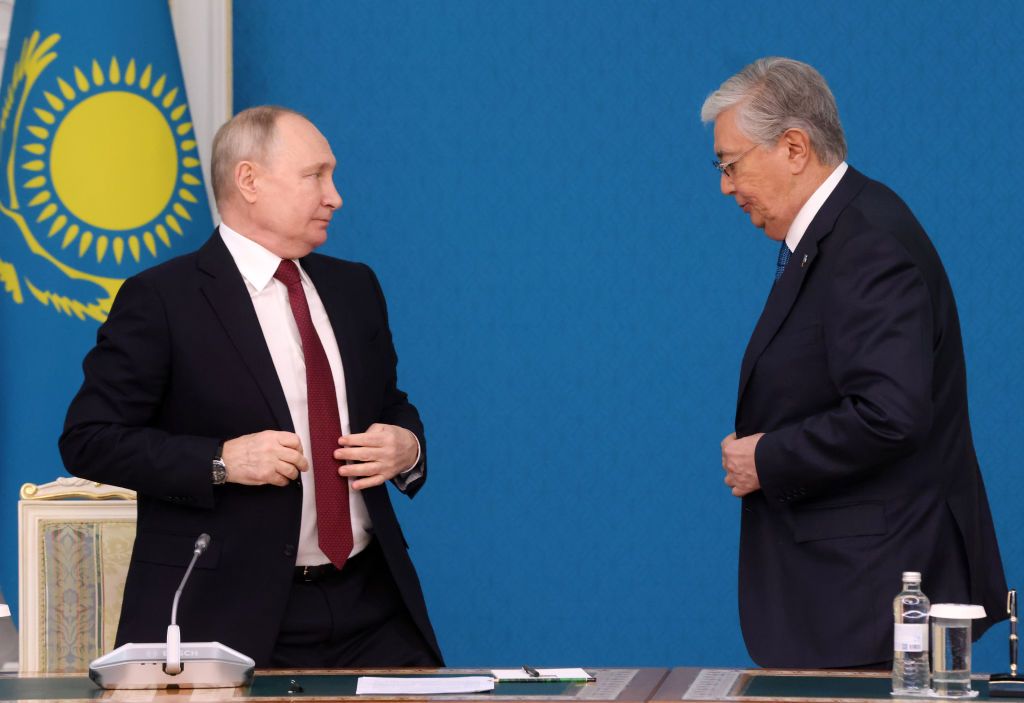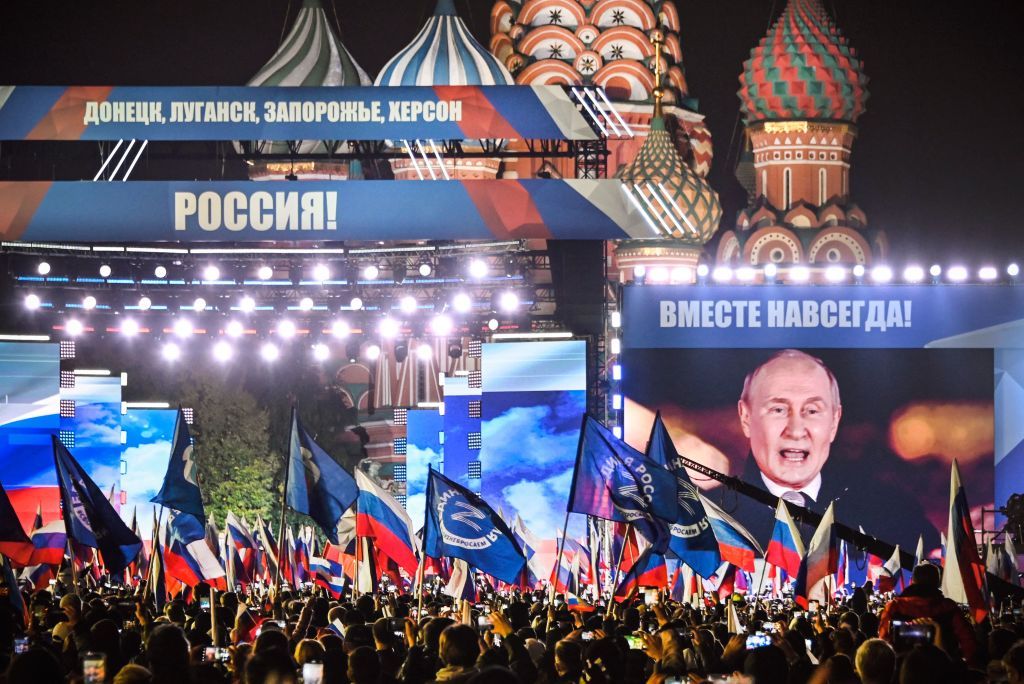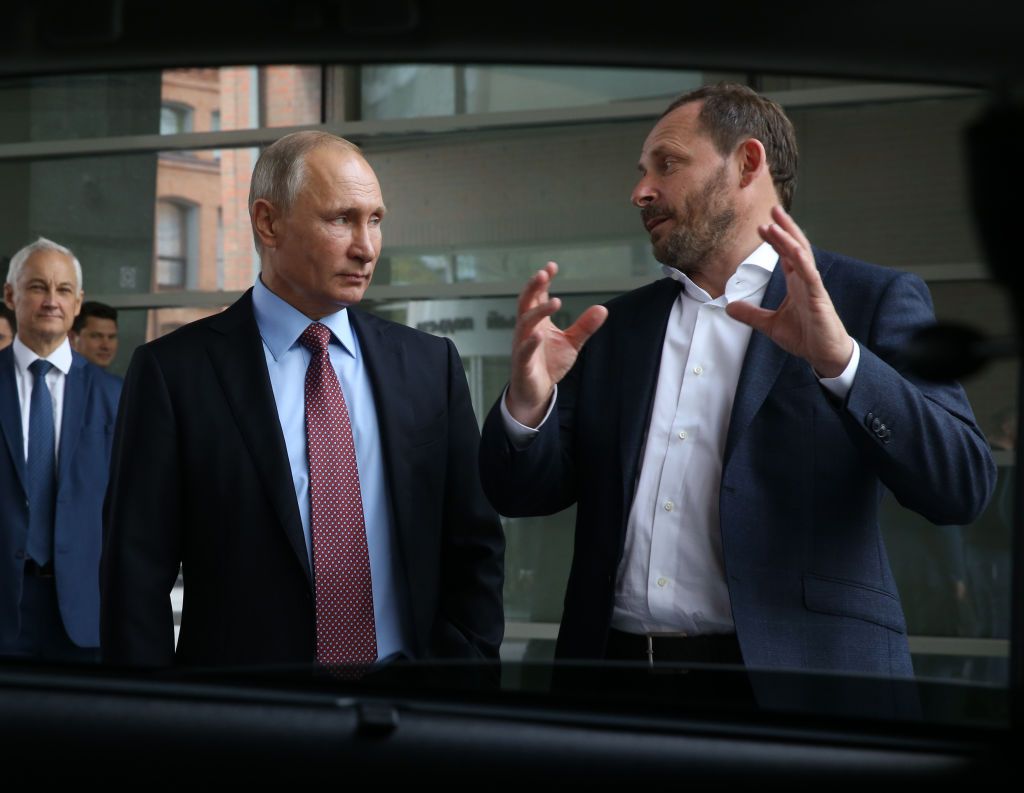Kyrgyzstan's trade is booming as Russia masters sanctions circumvention

In March 2022, Kyrgyzstan's economy began to change. Imports from long-term trade partners started to steadily rise, with imports from China almost tripling.
The shift was even more noticeable for countries that previously had few business ties to Bishkek. A sudden rush of goods appeared from across the European Union, with increased imports from Poland, the Czech Republic, and the Baltic states.
In some cases, the jump in interest was almost stratospheric.
Statistics from the Institute of International Finance found that between March 2022 and October 2023, German exports of cars and parts to Kyrgyzstan had risen by 5,500 percent.
The data on this trade boom can feel opaque. Many goods are categorized as arriving from an unknown country and are quickly scheduled for redelivery to an unknown destination.
Yet researchers have little doubt as to where these shipments are ending up.
They see these figures not as a sign of Kyrgyzstan's blossoming economy but of Moscow's ability to circumvent and avoid international sanctions.
'Unknown' destinations
Sanctions evasion is Russia's open secret. The system itself — known as "parallel importing" — is simple.
In May 2022, Moscow signed new laws allowing sanctioned items destined for foreign markets to be brought into Russia without approval from trademark owners. Goods only needed to be imported into a third country before being sent on to Russia itself.
These tactics were quickly adopted by hundreds of Russian and foreign companies. Propping up Moscow's wartime economy, the trade includes so-called "dual-purpose" items — goods such as household appliances whose parts can be cannibalized and repurposed for military use.
Between May and December 2022, Moscow reported importing some 2.4 million tons of goods worth $20 billion via the parallel imports scheme.
Today, figures collected in countries such as Kyrgyzstan indicate that this trend is continuing, says Dr. Erica Marat, an associate professor at the National Defense University in Washington D.C. Together with Dr Alexander Kupatadze, she has traced how countries in Central Asia and South Caucasus are helping Moscow evade Western sanctions.
Kyrgyzstan's official statistics show that its exports to Russia increased from $393 million in 2021, to $1.07 billion in 2022. But many countries are underreporting their own trade statistics, meaning that these numbers are likely the tip of this iceberg, Marat says.
"Kyrgyzstan is reporting some increase in trade, but very often, these countries will report goods as arriving from an unknown destination and leaving for an unknown destination. It's a loophole," she says.
In reality, Marat says, these goods are heading to Russia — and because the practice is not illegal, officials are happy to turn a blind eye and reap the economic benefits.
"The government is benefiting, the banks are benefiting, the Russian market and EU vendors are benefiting," says Marat. "Everyone is benefiting — except for Ukrainians."
Alternative engagement
Kyrgyzstan is by no means the only country where private businesses are helping Moscow to evade sanctions. But Bishkek's unique circumstances mean that the country is a particularly popular choice for businesses hoping to benefit from parallel imports.
Kyrgyzstan is a member of the Eurasian Economic Union (EAEU), alongside Armenia, Belarus, Kazakhstan, and most crucially, Russia. Established in 2015, the union regulates trade between member states, allowing for the free movement of goods and services.
For firms hoping to bypass sanctions, the minimal paperwork required to move products between EAEU states is a tempting prospect. But of the union's five members, Belarus is also under sanctions, while Russian-Armenian relations have become increasingly fraught in the aftermath of the war in Nagorno-Karabakh.
This leaves two options: Kazakhstan and Kyrgyzstan.
Kyrgyzstan's dependence on Moscow also means that the effects of parallel imports on the country's economy are particularly visible to outsiders — and Bishkek has few reasons to clamp down on the practice.
While larger Central Asian states such as Kazakhstan and Uzbekistan have received increased international attention since the start of Russia's full-scale war in Ukraine, Kyrgyzstan remains relatively neglected, says Emil Joroev, a Bishkek-based political scientist.

"Kazakhstan and Uzbekistan have been more interesting markets for international political players," he says. "The increase of attention and engagement that we've seen in Kyrgyzstan has been mostly within the framework of Central Asia as a whole."
But without any serious alternative, Bishkek will remain closely aligned with Russia, says Joroev.
"For a very long time, Kyrgyzstan has always dependent on Russia in multiple areas — economic, security, political — and I think there is clear awareness, both in the government and to some extent within society, that we're in this relationship because we don't have much else with which to replace it," he says.
"Of course, that doesn't mean that there aren't people in the country who are also benefiting significantly from this close relationship. But, at the moment, it's a relationship with no alternative."
Steps forward
Ultimately, Joroev and Marat agree that the battle to stop parallel imports in countries such as Kyrgyzstan will need to be waged elsewhere.
While companies may seemingly have little say if their products are re-exported after purchase, there are steps that they can take, says Marat.
"One way of enforcing sanctions is actually for companies like Apple or Samsung to disable their products on the territory of the Russian Federation," she says. "They know very well where their products end up."
But if governments hope to take more decisive action, then the battle needs to start on the home front.
"These sanctions have been very half-hearted in their gradualism, their cautiousness. A good number of these imports into Kyrgyzstan are actually coming from Western companies, agents, and suppliers," says Joroev.
"If sanctions are going to stop these supply chains, then why not start at the source rather than in the middle of it?"














